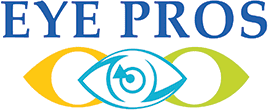Exploring Vision Correction Options in Layton: What Suits You Best?
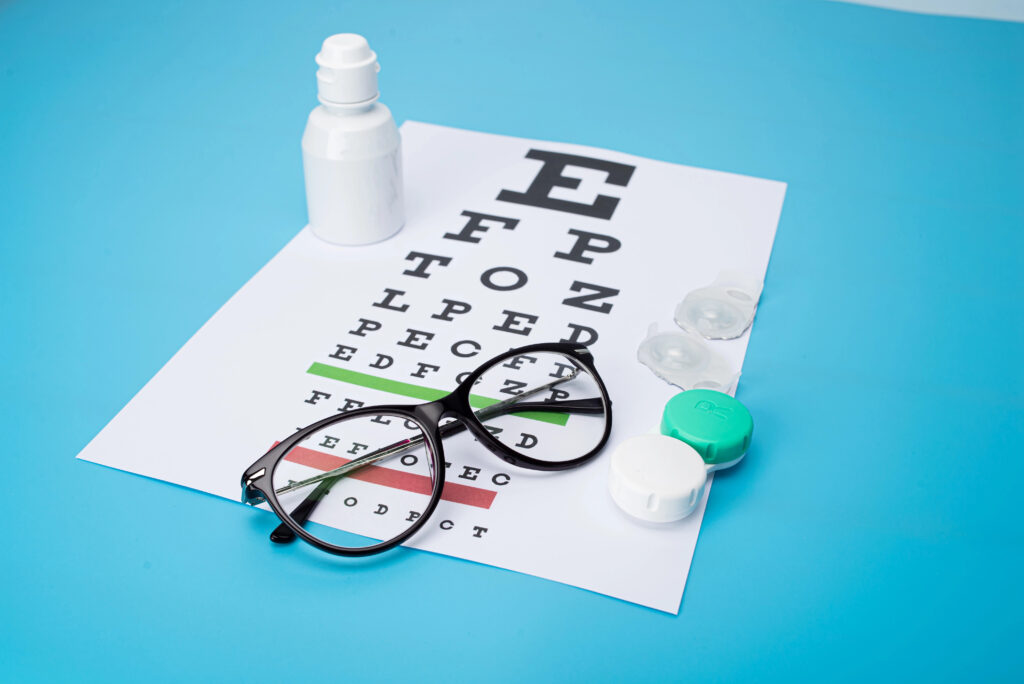
If you’ve been struggling with blurry vision, headaches, or eye strain, it may be time to explore your vision correction options. In a place like Layton, where outdoor adventure and screen time go hand-in-hand, having clear, comfortable vision isn’t just a luxury—it’s essential. Whether you’re considering your first pair of glasses or thinking about laser surgery, finding the right solution for your lifestyle can make all the difference. At Eye Pros Layton, our experienced eye doctors are committed to helping you make an informed decision about your vision correction. From comprehensive eye exams to personalized treatment plans, our team provides expert guidance tailored to your needs. With so many advanced options available at local eye clinics in Layton, now’s the perfect time to take control of your eye health and find the solution that works best for you. Common Vision Problems That Require Correction Before exploring your vision correction options, it’s helpful to understand the common vision issues that people in Layton often experience. Whether mild or severe, these conditions can affect your daily life—impacting everything from driving to working on a computer. At Eye Pros Layton, we treat these common refractive errors: Myopia (Nearsightedness) If distant objects appear blurry but close-up objects are clear, you may have myopia. This condition often starts in childhood and can worsen over time without proper vision correction. Hyperopia (Farsightedness) If you struggle to focus on nearby objects but see distant objects clearly, you may have hyperopia. Many people with mild hyperopia may not notice symptoms until they experience eye strain or headaches. Astigmatism Astigmatism occurs when the cornea or lens has an irregular shape, causing blurred or distorted vision at all distances. Special lenses, LASIK, or orthokeratology can correct this common issue. Presbyopia If reading small print has become a challenge as you age, presbyopia could be the cause. It’s a natural part of aging that typically appears around age 40, requiring multifocal lenses, reading glasses, or surgical options. Understanding which vision issue you’re dealing with is the first step. Our eye doctors at Eye Pros Layton can provide a comprehensive exam to determine the best vision correction for your needs. Vision Correction Options Available in Layton At Eye Pros Layton, we offer a wide range of vision correction solutions designed to fit your lifestyle, vision needs, and personal preferences. Whether you’re looking for something simple like glasses or considering advanced surgical procedures, our experienced eye doctors will guide you every step of the way. Top vision correction options at our Layton eye clinic: Eyeglasses Affordable and convenient, glasses are a tried-and-true method of correcting myopia, hyperopia, astigmatism, and presbyopia. With a wide range of frame styles and lens options—such as blue light protection and transition lenses—you can correct your vision and express your personal style at the same time. Great for kids, teens, adults, and seniors alike. Contact Lenses Flexible and discreet, contact lenses are a great alternative to glasses for people with active lifestyles. We offer daily disposables, extended wear lenses, toric lenses for astigmatism, and multifocal lenses for presbyopia. Our expert eye doctors at Eye Pros Layton ensure a perfect fit for maximum comfort and eye health. LASIK Surgery LASIK is a popular surgical vision correction option that reshapes the cornea to correct refractive errors like myopia, hyperopia, and astigmatism. It offers quick recovery times and long-term vision improvement, often reducing or eliminating the need for glasses or contacts. We offer referrals and pre- and post-operative care for LASIK patients in Layton. PRK Surgery PRK (Photorefractive Keratectomy) is an alternative to LASIK for patients who may not qualify for LASIK due to thin corneas. This procedure also reshapes the cornea but involves a slightly longer recovery period. PRK is safe, effective, and often recommended by our Layton eye doctors for specific cases. Orthokeratology (Ortho-K) Ortho-K lenses are specialized rigid contact lenses worn overnight to temporarily reshape the cornea. These lenses are ideal for people with mild to moderate myopia, particularly kids and teens looking to slow the progression of nearsightedness. Wake up with clearer vision—no glasses or contacts needed during the day! Vision Therapy Vision therapy is a non-surgical program designed to improve the way the eyes work together. It’s often recommended for children with learning-related vision problems or adults suffering from eye strain and focusing issues. Our eye doctors at Eye Pros Layton create customized programs tailored to your specific needs. Whatever your lifestyle, age, or vision needs, Eye Pros Layton offers vision correction options that help you see your world more clearly. Factors to Consider When Choosing Vision Correction Choosing the right vision correction option isn’t one-size-fits-all. At Eye Pros Layton, our experienced eye doctors help you weigh several factors to find the best solution for your lifestyle, vision needs, and long-term eye health. Consider this before deciding: Your Age and Lifestyle Are you an athlete, a student, or someone who spends hours in front of a computer? Your daily activities will influence whether glasses, contact lenses, or surgical options are the best fit. For active individuals in Layton, contact lenses or Ortho-K lenses may offer more convenience than glasses. Severity of Your Vision Problem Mild myopia may be easily corrected with glasses, while severe astigmatism might require specialty lenses or laser surgery. Our eye doctors will assess your prescription and recommend the best vision correction approach based on your diagnosis. Comfort and Convenience Some people prefer the ease of glasses, while others like the freedom that contact lenses provide. If you’re seeking a long-term solution that requires minimal daily maintenance, LASIK or PRK might be right for you. Medical Eligibility Certain health conditions like dry eyes, thin corneas, or chronic allergies can limit your options. Our comprehensive eye exams at Eye Pros Layton help determine whether you’re a candidate for surgical correction or if contact lenses will be more suitable. Cost and Budget Glasses and contact lenses are generally more affordable upfront, while LASIK and PRK are larger investments that may save money over time. We’ll
Contact Stuck for Days? Here’s What to Do When a Lens Won’t Budge
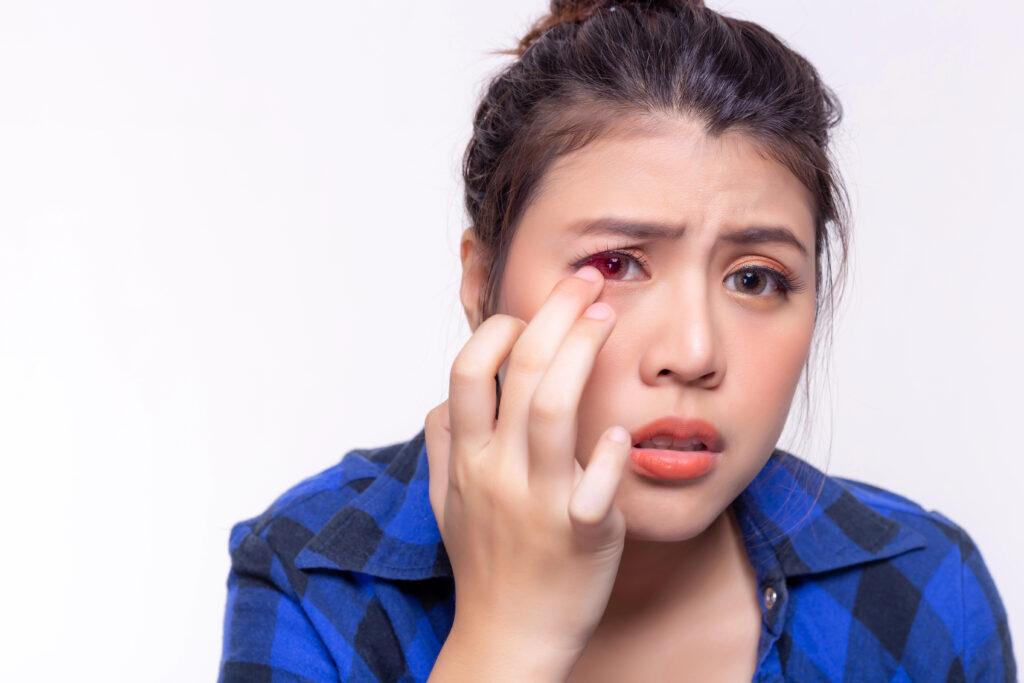
A contact lens stuck in your eye can be uncomfortable, alarming, and—if left for too long—potentially harmful to your vision. While contacts are designed for easy removal, dryness, shifting, or even sleeping in them can sometimes cause them to get stuck. If you’ve been struggling with a lens that won’t budge, you’re not alone. Many contact wearers encounter this issue at some point, but taking the right steps is essential to prevent irritation, infection, or damage. In this article, we’ll walk you through safe removal techniques, explain the risks of leaving a lens in for extended periods, and guide you on when it’s time to consult an eye doctor. If a lens has been stuck in your eye for days, it’s best to seek professional help from the experts at Eye Pros to protect your vision and ensure a quick, safe solution. Understanding Stuck Contact Lenses A contact lens can sometimes get stuck in the eye, causing discomfort and concern. Understanding the reasons and signs can help you address the issue safely. Causes of a stuck contact lens include: Why Contacts Get Stuck?: Contacts can get stuck if the eye becomes dry, if the lens shifts due to improper fit, or if the contact is worn beyond its recommended time. Sleeping in contacts or using them in a dry environment can also increase the risk of a stuck lens. Symptoms of a Stuck Lens: When a contact is stuck, you may experience eye irritation, a gritty sensation, blurry vision, or redness. In some cases, the lens may not be easily visible but can still cause discomfort. Can It Get Lost in the Eye?: It’s common to worry that a contact might “disappear” behind the eye, but this isn’t possible due to the eye’s anatomy. A stuck contact may shift, but it can’t move beyond the front of the eye, making it retrievable with proper techniques. Understanding these causes and symptoms can prepare you to safely remove a stuck lens. For assistance, consulting an eye doctor at Eye Pros can ensure your eyes remain safe and comfortable. Safe Steps to Remove a Stuck Contact Lens If you find yourself dealing with a contact lens that just won’t come out, there are safe ways to attempt removal without risking eye damage. Here are some steps to follow: Hydrate the Eye: Use saline solution or rewetting drops to lubricate the eye, which can help loosen the lens and make it easier to remove. Avoid using plain water, as it isn’t sterile and can introduce bacteria. Blink and Gently Massage: Blink several times to help reposition the lens naturally. You can also try gently massaging your closed eyelid in circular motions, which may encourage the lens to shift into a more accessible position. Use Clean Hands and Be Patient: Always wash your hands thoroughly before attempting to remove the lens. Be gentle, as excessive rubbing or pressure can scratch the cornea. It’s essential to remain calm and avoid panicking, as this can cause more discomfort. Avoid Tweezers or Sharp Tools: Never use tweezers, sharp objects, or nails to attempt removal, as this can seriously damage your eye. Stick to clean fingers or tools recommended by your eye doctor. If these steps don’t help, or if the lens has been stuck for an extended period, it’s time to consult an eye doctor at Eye Pros. They can safely remove the lens and assess any potential irritation or damage. Risks of Leaving a Contact Lens Stuck Leaving a contact lens stuck in your eye for extended periods can lead to several health risks, ranging from mild irritation to more serious conditions. Potential risks to be aware of: Eye Infections: Contacts that remain in the eye for too long, especially if they’re stuck, can become a breeding ground for bacteria. This can lead to infections such as conjunctivitis or keratitis, which require prompt treatment. Corneal Abrasions and Damage: A stuck lens can rub against the cornea, causing tiny scratches or abrasions. These abrasions can be painful and may lead to further complications if bacteria enter the wound. Increased Irritation and Redness: Over time, a stuck lens can cause the eye to become increasingly red, itchy, and sensitive. This irritation is often a sign that the eye is reacting to the prolonged presence of the lens. Risk of Ulcers and Scarring: In severe cases, prolonged contact lens wear without removal can lead to corneal ulcers, which are open sores on the cornea. These ulcers can result in scarring that impacts vision permanently. To prevent these risks, don’t delay addressing a stuck lens. If it won’t come out, seek help from an eye doctor. The team at Eye Pros is equipped to remove lenses safely and treat any resulting complications, helping you protect your vision. When to Seek Help from an Eye Doctor? If you’ve tried to remove a stuck contact lens without success, it may be time to consult an eye doctor. Signs professional assistance is needed: Persistent Discomfort or Pain: If you experience ongoing pain, redness, or discomfort even after attempting safe removal techniques, an eye doctor can evaluate the situation and remove the lens without risking further irritation. Blurred Vision or Sensitivity to Light: If your vision becomes blurry or you notice an increased sensitivity to light, these could be signs of a potential corneal abrasion or infection caused by the stuck lens. Excessive Redness or Discharge: Redness, swelling, or unusual discharge from the eye may indicate an infection. An eye doctor can diagnose the issue and prescribe any necessary treatment to protect your eye health. Difficulty Locating the Lens: Sometimes, a contact lens may shift, making it hard to find on your own. An eye doctor at Eye Pros can use specialized tools to locate and safely remove the lens. Seeking timely help from an eye doctor can prevent complications and relieve discomfort. The experts at Eye Pros can ensure your eye health is preserved, offering effective solutions to restore comfort and clarity. Preventing
Meet Logan’s Leading Eye Specialists: Commitment to Community Eye Health
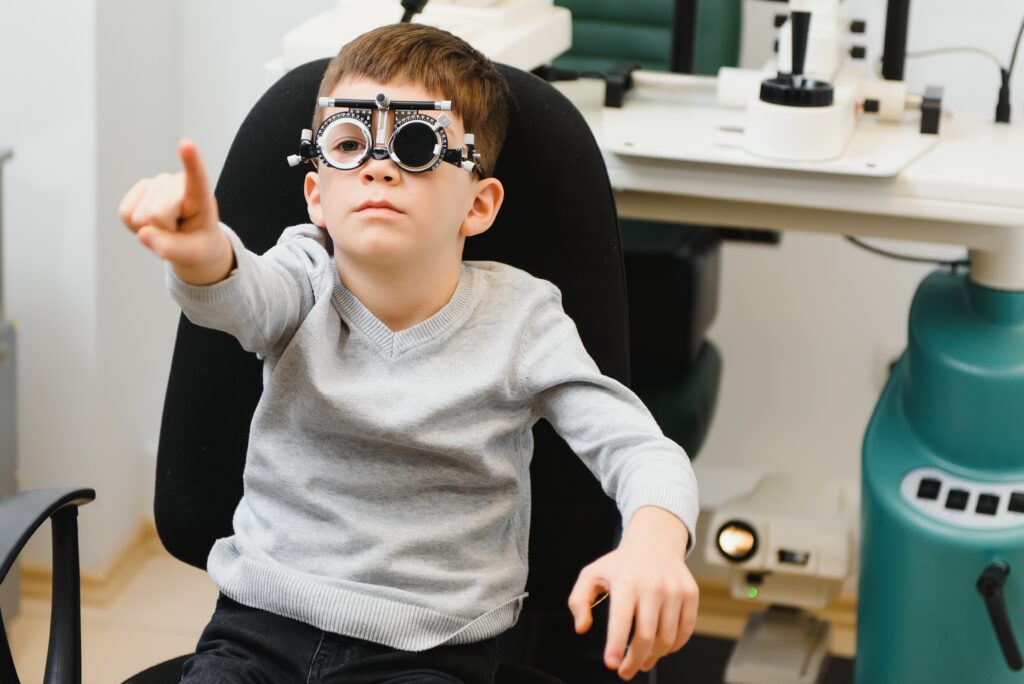
Clear vision isn’t just about seeing well—it’s about living well. Whether you’re working, learning, or enjoying the outdoors in beautiful Logan, Utah, healthy eyes play a vital role in your everyday life. That’s why having a trusted eye doctor who understands your needs—and your community—is essential. At Eye Pros Logan, our leading eye specialists are dedicated to providing personalized, comprehensive care to patients of all ages. From routine eye exams to advanced vision therapy, we focus on improving your eye health and quality of life. Our commitment extends beyond the clinic doors, with a mission to support Logan’s community eye health through education, prevention, and early intervention. If you’re looking for experienced Logan eye doctors who put your vision first, you’re in the right place. Let’s take a closer look at why Eye Pros are Logan’s go-to team for trusted, compassionate, and comprehensive eye care. Why Logan’s Leading Eye Specialists Stand Out When it comes to your vision, you need more than just an annual check-up—you need a team that’s dedicated to your lifelong eye health. At Eye Pros Logan, our leading eye specialists combine expertise, advanced technology, and compassionate care to deliver a higher standard of service. Why so many Logan residents trust our eye doctors: Experienced Eye Doctors You Can Trust Our optometrists bring years of experience in diagnosing and treating a wide range of vision conditions. Whether you need a comprehensive eye exam, contact lenses, or vision therapy in Logan, you’ll work with professionals who are passionate about protecting your sight. Comprehensive Eye Care for All Ages From kids to seniors, we offer personalized care for every stage of life. Whether your child needs their first vision screening or you’re looking for help managing age-related conditions like cataracts or glaucoma, our team is here to help. Advanced Diagnostic Technology We use state-of-the-art equipment like retinal imaging and OCT scans to detect problems early and provide precise treatment plans. This technology allows us to deliver accurate diagnoses and monitor your eye health over time. Commitment to Logan’s Community Eye Health As part of the Logan community, we’re committed to making quality eye care accessible. We educate families about vision health and offer flexible appointment options for busy lives. At Eye Pros Logan, we take pride in being the leading eye specialists in the area—because your vision deserves nothing less. Comprehensive Eye Care Services in Logan At Eye Pros Logan, we offer a wide range of services designed to meet your unique vision needs. Whether you need a routine eye exam, treatment for a specific condition, or customized vision therapy, our eye doctors are here to help you achieve and maintain optimal eye health. Explore our comprehensive eye care services in Logan: Comprehensive Eye Exams Our thorough eye exams go beyond vision correction. We screen for early signs of glaucoma, cataracts, macular degeneration, and other serious conditions. Regular eye exams with our Logan eye doctors help ensure long-term vision health. Pediatric Eye Care Children’s vision is critical to their development and learning. Our pediatric services include early eye exams, lazy eye (amblyopia) treatment, and vision therapy to address focusing issues, eye teaming problems, and more. Vision Therapy in Logan For patients with conditions like eye strain, convergence insufficiency, or lazy eye, our customized vision therapy programs can help. These tailored exercises train the eyes and brain to work together more efficiently—improving both vision and comfort. Diabetic Eye Exams Diabetes can affect your eyes before you notice symptoms. Our diabetic eye exams detect early signs of diabetic retinopathy and other complications, helping you stay ahead of vision-threatening conditions. Dry Eye Treatment Logan’s dry climate can lead to chronic dry eye symptoms. We offer advanced dry eye treatments, including specialized drops and therapies to relieve discomfort and protect your vision. Emergency Eye Care Accidents happen. Whether you have an eye infection, sudden vision changes, or a foreign object in your eye, our Logan eye doctors provide prompt, expert care. Eyewear: Glasses and Sunglasses We offer a wide selection of stylish and functional eyewear, including prescription glasses and sunglasses. Our team helps you find the perfect fit and look to match your lifestyle. At Eye Pros Logan, we deliver comprehensive eye care tailored to your needs—whether you’re seeking preventive care or advanced treatment. Vision Therapy in Logan: Helping Eyes Work Better Together If you or your child struggles with eye strain, difficulty focusing, or visual coordination problems, vision therapy might be the solution you’ve been searching for. At Eye Pros Logan, our leading eye specialists offer personalized vision therapy programs designed to improve how your eyes and brain work together—resulting in clearer, more comfortable vision. What Is Vision Therapy? Vision therapy is a non-surgical treatment program that involves guided eye exercises, activities, and specialized equipment to strengthen the connection between the eyes and brain. Unlike glasses or contact lenses, which correct refractive errors, vision therapy focuses on improving the functional skills that allow your eyes to work as a team. Who Can Benefit from Vision Therapy? Our Logan eye doctors recommend vision therapy for all ages with: Difficulty with eye tracking (often affecting reading skills) Convergence insufficiency (trouble focusing on close-up tasks) Eye strain or headaches from prolonged computer use Lazy eye (amblyopia) Double vision Sports-related vision problems (hand-eye coordination, reaction time) Customized Vision Therapy at Eye Pros Logan We tailor each vision therapy program to the individual. Whether it’s helping a child who struggles in school due to focusing issues or an adult experiencing eye strain from digital devices, our eye doctors develop a plan that works for you. Sessions may include: Eye movement and focusing exercises Visual-motor integration activities Hand-eye coordination tasks At-home reinforcement programs If you’re interested in vision therapy in Logan, Eye Pros offers consultations to determine if it’s right for you or your child. Our goal is to help patients experience improved comfort, performance, and overall eye health. Eye Pros’ Commitment to Community Eye Health At Eye Pros Logan, our mission goes beyond providing outstanding in-office
Comprehensive Eye Care in Idaho Falls: Services You Should Consider
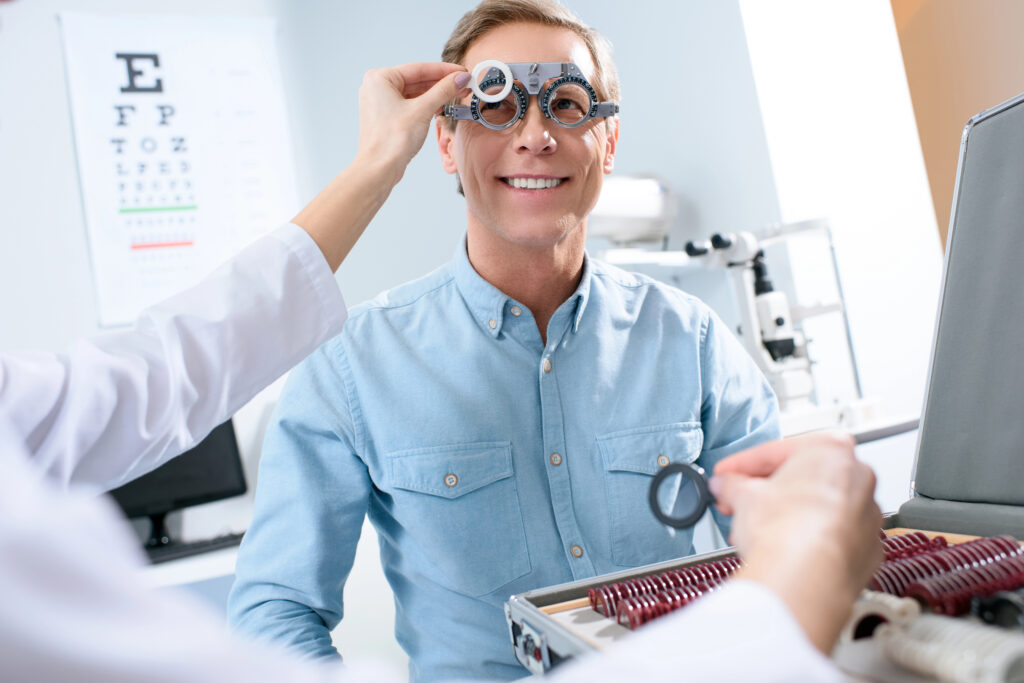
When it comes to your health, clear vision is something you should never take for granted. Regular eye care not only helps you see your best but also plays a key role in detecting serious health conditions early. That’s why comprehensive eye care is so important—especially when provided by trusted professionals who understand your unique vision needs. At Eye Pros, our team of experienced eye doctors in Idaho Falls is dedicated to delivering full-scope care for patients of all ages. Whether it’s time for your annual eye exam, you’re experiencing blurry vision, or you need specialized treatment, we offer a wide range of services designed to protect and preserve your eye health. In this guide, we’ll explore what comprehensive eye care means, the services you should consider, and why regular eye check-ups are essential for lifelong vision wellness. What Is Comprehensive Eye Care? Comprehensive eye care goes beyond just getting a new prescription for glasses or contact lenses. It’s a complete approach to maintaining and improving your eye health—focused on both clear vision and the long-term wellness of your eyes. At its core, a comprehensive eye exam performed by an experienced eye doctor evaluates much more than your ability to read an eye chart. It includes a full assessment of your overall vision health and screens for serious conditions that can develop without noticeable symptoms, such as glaucoma, macular degeneration, diabetic retinopathy, and cataracts. Here’s what you can typically expect during a comprehensive eye exam at Eye Pros Idaho Falls: Visual Acuity Testing: Measures how clearly you see at different distances. Refraction Testing: Determines your exact lens prescription for glasses or contact lenses. Eye Health Evaluation: A thorough check of your eye’s internal and external structures, including the retina, cornea, and optic nerve. Pressure Testing (Tonometry): Screens for glaucoma by measuring intraocular pressure. Pupil Dilation: Provides a better view of the back of your eye to detect signs of disease. Discussion of Symptoms and Lifestyle Needs: Your eye doctor will discuss any vision changes, health concerns, and recommend personalized solutions based on your lifestyle. At Eye Pros Idaho Falls, we believe in a proactive approach. Comprehensive care means catching problems early—often before they impact your vision—while offering solutions tailored to your needs, whether you’re a child, adult, or senior. Essential Vision Services Offered at Eye Pros Idaho Falls At Eye Pros Idaho Falls, we provide comprehensive eye care that meets the needs of every patient—from young children to seniors. Whether you need a routine check-up or advanced treatment, our services are designed to protect your eye health and enhance your vision for the long term. Here’s an overview of the vision services we offer at our Idaho Falls clinic: Routine Eye Exams Regular eye exams are the foundation of good eye health. During a comprehensive eye exam, our Idaho Falls eye doctors check for vision changes and eye diseases, ensuring early detection of conditions like glaucoma and macular degeneration. We recommend scheduling an exam at least once a year to stay on top of your vision needs. Contact Lens Exams and Fittings Finding the right contact lenses involves more than just matching your prescription. We offer customized contact lens fittings for comfort and clarity, including specialty lenses for astigmatism and dry eyes. If you’re new to contacts or thinking about switching from glasses, our Idaho Falls optometrists will guide you through the process. Dry Eye Treatment Boise and Idaho Falls’ dry climates can take a toll on your eyes. If you’re dealing with burning, redness, or a gritty feeling, you might have dry eye syndrome. Our team provides effective treatment options, including specialized eye drops and advanced therapies like IPL (Intense Pulsed Light) at select locations. Diabetic Eye Exams Diabetes can silently damage your eyes long before symptoms appear. Our diabetic eye exams include in-depth screenings for diabetic retinopathy and macular edema. Early detection is key to preventing vision loss, and our Idaho Falls eye doctors are experienced in managing diabetes-related eye conditions. Emergency Eye Care Eye emergencies can happen anytime. Whether you have a sudden injury, infection, or vision loss, our Idaho Falls clinic offers prompt emergency eye care. Don’t wait—quick treatment can prevent further damage and protect your eyesight. Pediatric Eye Exams Children’s eye health is essential for their learning and development. Our pediatric eye exams are designed to detect vision issues early on, such as lazy eye (amblyopia) or strabismus. Early diagnosis ensures your child has the best chance at clear, healthy vision. LASIK Consultations Thinking about reducing your need for glasses or contacts? We offer LASIK consultations to determine if you’re a candidate for laser vision correction. Our team provides pre- and post-operative care to support you every step of the way. Eyewear Services: Glasses and Sunglasses From stylish frames to prescription sunglasses, we carry a wide selection of eyewear for all ages. Our knowledgeable staff can help you find the perfect pair to suit your style and vision needs. At Eye Pros Idaho Falls, we pride ourselves on offering comprehensive eye care tailored to your individual needs. Whether you’re scheduling a regular eye exam or seeking specialized treatment, our friendly and experienced team is here to help. Why Regular Eye Check-Ups Are So Important Your eyes are constantly changing, even if you don’t notice it right away. Regular eye check-ups are one of the simplest—and smartest—ways to protect your eye health. At Eye Pros Idaho Falls, we emphasize preventive care through routine comprehensive eye exams to help our patients maintain clear vision and catch potential problems early. Here’s why scheduling regular eye check-ups with an experienced eye doctor matters: Early Detection of Eye Diseases Many serious eye conditions, like glaucoma, macular degeneration, and diabetic retinopathy, develop silently. You might not experience symptoms until significant damage has occurred. A comprehensive eye exam can detect these conditions in their earliest stages when they’re easier to treat and manage. Monitoring Chronic Conditions If you have diabetes, high blood pressure, or a family history of eye disease, regular
How Boise’s Unique Climate Affects Your Vision: Tips from Local Eye Experts
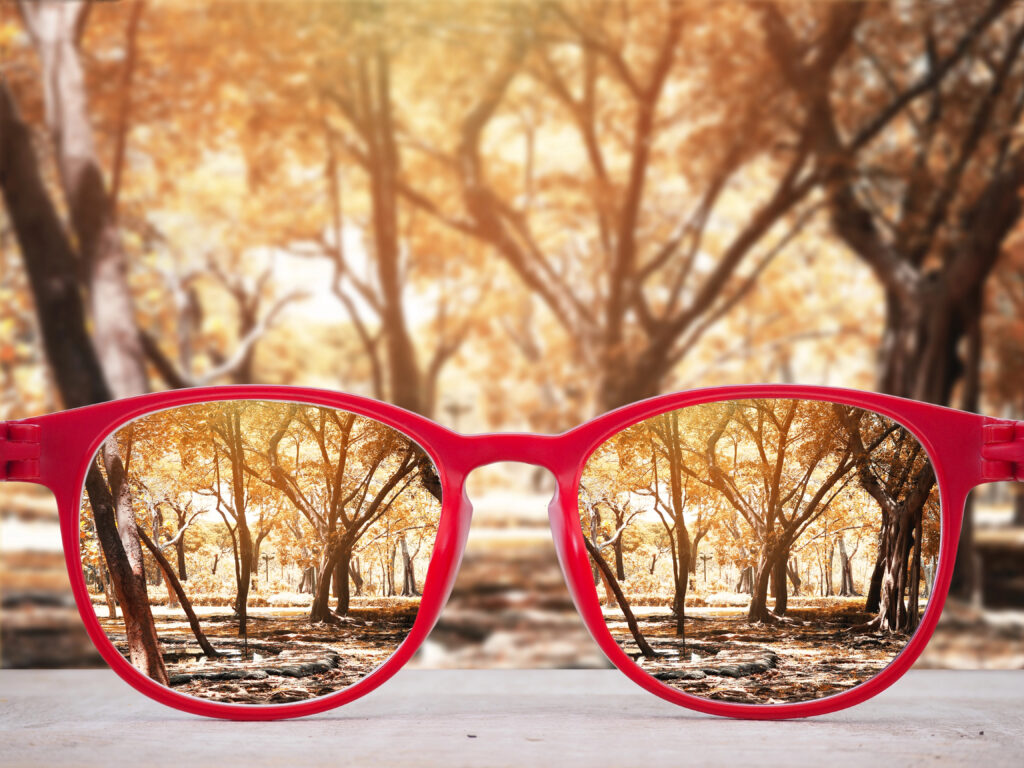
Boise’s unique high-desert climate brings plenty of sunshine, low humidity, and beautiful outdoor opportunities. But did you know this combination of dry air, elevation, and intense UV exposure can take a serious toll on your eyes? Many locals experience dry eyes, increased sensitivity to sunlight, and seasonal allergies—often without realizing the climate may be to blame. At Eye Pros, our eye doctors understand how Boise’s environment impacts your vision health. Whether you’re dealing with dry eye irritation or blurry vision caused by seasonal allergies, our team is here to help. In this article, we’ll explore how Boise’s climate affects your vision and share practical tips from our local optometrists to help you protect your eyes year-round. Understanding Boise’s Climate and Its Impact on Your Eyes Boise’s climate is defined by low humidity, high altitude, and over 200 days of sunshine each year. While these conditions are ideal for outdoor enthusiasts, they can create a perfect storm for eye irritation and long-term vision problems if you’re not proactive about eye care. Here’s how Boise’s climate affects your vision: Low Humidity Levels: Boise’s dry air causes moisture to evaporate quickly from the surface of your eyes, leading to symptoms like dryness, irritation, and a gritty sensation. This is a common trigger for dry eye syndrome, especially in the winter months when indoor heating further reduces humidity. High UV Exposure: The higher elevation in Boise increases UV radiation exposure by up to 10-12% for every 1,000 feet above sea level. Prolonged exposure without proper eye protection raises the risk of cataracts, macular degeneration, and other forms of UV-related eye damage. Seasonal Allergies: Spring and summer in Boise bring an increase in pollen and allergens, which can lead to itchy, watery, and red eyes. These symptoms often overlap with dry eye issues, making relief tricky without guidance from a trusted eye doctor. Wind and Dust: Boise’s windy days stir up dust and debris, which can irritate the eyes and exacerbate dryness or cause allergic reactions. Boise residents may not immediately connect these environmental factors to their vision concerns, but they play a significant role in maintaining long-term vision health in Boise. An annual eye exam at Eye Pros can help identify early signs of climate-related eye conditions and offer tailored solutions. Common Vision Problems Caused by Boise’s Climate Living in Boise means embracing the outdoors—but your eyes may not always thank you for it. The city’s dry, sunny, and sometimes dusty environment can lead to a range of eye issues that locals experience more often than they realize. Here are some of the most common vision health problems in Boise tied to the region’s unique climate: Dry Eye Syndrome Boise’s low humidity and high desert air make dry eye syndrome one of the most common complaints among residents. When your eyes can’t produce enough natural tears—or those tears evaporate too quickly—you’re left with stinging, burning, or gritty sensations. It’s especially problematic in the winter months or if you spend a lot of time outdoors. Increased Risk of UV Damage With over 200 sunny days a year and higher elevation, UV exposure is more intense in Boise. Without proper eye protection, you risk developing cataracts, macular degeneration, and even growths like pterygium (a fleshy tissue that can form on the white of the eye). Sunglasses aren’t just a fashion statement here—they’re an essential tool for vision health in Boise. Allergy-Related Eye Irritation From spring pollen to late-summer dust, seasonal allergies in Boise can wreak havoc on your eyes. Common symptoms include redness, itching, tearing, and puffiness. Sometimes it’s hard to tell if it’s allergies or dry eyes without an evaluation from an eye doctor at Eye Pros. Contact Lens Discomfort Boise’s dry climate can make wearing contact lenses uncomfortable. Lenses can dry out faster, leading to blurry vision, irritation, and a feeling like something is stuck in your eye. Special contact lenses designed for dry climates or adding lubricating drops can help—ask your local optometrist in Boise for recommendations. Many of these problems can be managed or even prevented with a little help from a local eye doctor. At Eye Pros, we specialize in customized eye care solutions for Boise’s climate. Pro Tips from Boise Eye Doctors to Protect Your Eyes Whether you’re an outdoor adventurer or just navigating Boise’s sunny, dry days, protecting your vision is essential. Our optometrists in Boise at Eye Pros recommend these simple, effective tips to keep your eyes healthy and comfortable in our unique climate. Stay Hydrated Drinking plenty of water throughout the day helps maintain overall hydration, including your eyes. Dehydration can worsen dry eye symptoms, so aim for at least 8 glasses of water daily, especially during Boise’s hot, dry summers. Wear UV-Protective Sunglasses Boise’s higher elevation increases UV exposure, which can damage your eyes over time. Look for sunglasses that block 100% of UVA and UVB rays. Wraparound styles offer extra protection from wind and dust while shielding your peripheral vision. Use Lubricating Eye Drops Over-the-counter artificial tears can combat the dryness that Boise’s climate causes. Use preservative-free options if you need them frequently. If standard drops aren’t enough, an eye doctor at Eye Pros can recommend advanced dry eye treatments. Try a Humidifier at Home Running a humidifier in your home or office helps restore moisture to the air, reducing eye dryness, irritation, and redness. This is especially useful in the winter months when heating systems lower indoor humidity levels. Wear Protective Eyewear on Windy Days Boise’s windy conditions kick up dust and debris, which can irritate your eyes. Wraparound sunglasses or protective goggles can prevent particles from entering your eyes, reducing the risk of irritation and allergic reactions. Limit Outdoor Exposure During Allergy Seasons If you’re sensitive to pollen and other allergens, try to limit outdoor activities on high-pollen days. Keeping windows closed and using air purifiers can also minimize allergen exposure indoors. By following these tips, you can enjoy Boise’s beautiful weather without sacrificing your vision health. And if your symptoms persist,
Monovision: A Unique Approach to Correcting Both Near and Far Vision

As we age, vision changes can become a daily frustration, especially when we start needing different prescriptions for tasks like reading up close and seeing clearly at a distance. Many people turn to bifocals or multiple pairs of glasses to address these challenges, but monovision offers a unique alternative. Monovision is a vision correction method designed to allow one eye to focus on near tasks while the other manages far vision, giving you the benefit of clear sight at all distances without constantly switching lenses. This article dives into what monovision is, how it works, and who it’s best suited for, whether through contact lenses or surgery like LASIK. If you’re considering monovision, a consultation with an eye doctor at Eye Pros can help determine if it’s the right choice to meet your vision needs and simplify your daily routine. What is Monovision and How Does it Work? Monovision is a specialized vision correction technique that involves correcting one eye for near vision and the other for distance. By designating one eye to handle each task, monovision helps you see clearly at different distances without relying on bifocals or multiple pairs of glasses. Monovision Explained In a monovision setup, the dominant eye is typically corrected for distance vision, while the non-dominant eye is adjusted for near tasks like reading. This approach allows each eye to take on specific visual tasks, reducing the need for external aids. How the Brain Adapts Although it might seem strange at first, the brain learns to adapt by balancing inputs from each eye. Over time, it can naturally switch focus between the eyes as needed, allowing you to see up close and far away comfortably. Monovision for Presbyopia Monovision is especially popular among people with presbyopia—a common age-related condition that makes near vision more difficult. Monovision provides a simple solution to manage both near and distance vision needs simultaneously. This technique can be tried with contact lenses first, allowing you to experience monovision and see if it suits your lifestyle. Consulting with an eye doctor at Eye Pros can help you understand how monovision might fit into your vision care plan. Monovision Options: Contact Lenses and LASIK When considering monovision, you have two primary options: contact lenses and LASIK surgery. Each method offers unique benefits, and the right choice depends on your lifestyle, comfort, and vision needs. Monovision Contact Lenses Monovision can be achieved using contact lenses, where one lens is prescribed for distance and the other for close-up tasks. This non-surgical approach allows you to test how monovision works for you. If you find it effective and comfortable, contact lenses can be a long-term solution. The flexibility of trying monovision lenses also makes it a great starting point for those new to this vision correction method. Monovision LASIK Surgery For those seeking a more permanent solution, monovision LASIK is an option. LASIK surgery involves reshaping each eye’s cornea to correct for different distances. This method provides the benefits of monovision without the need for daily lens care or the hassle of swapping glasses. However, LASIK is an irreversible option, so an eye doctor will typically conduct a trial with monovision contacts first to ensure it’s a good fit. Choosing the Right Method Both contact lenses and LASIK offer advantages, but the choice largely depends on your comfort with each method. An eye doctor at Eye Pros can help you determine which option best suits your lifestyle, ensuring you achieve effective vision correction with maximum convenience. Each method provides a unique way to experience the benefits of monovision, and a consultation can help you find the ideal solution for your vision needs. Who is a Good Candidate for Monovision? Monovision can be a great solution for many people, but it’s not ideal for everyone. Factors for determining candidacy: Typical Candidates: Monovision is especially beneficial for those experiencing presbyopia, an age-related condition that affects near vision. Individuals who are tired of switching between glasses for different tasks may find monovision particularly helpful. Vision Testing: A trial period with monovision contact lenses is often recommended to see if you can comfortably adjust to the vision shift. This trial allows you to experience monovision in daily activities, such as reading and driving, before committing to a permanent solution like LASIK. Consult an Eye Doctor: Since monovision doesn’t work well for everyone, consulting an eye doctor is essential. Some people find it challenging to adjust to the differing focus in each eye, while others adapt easily. An eye doctor at Eye Pros can perform tests to assess your suitability and help you explore whether monovision could simplify your vision correction needs. Determining candidacy is an important step, and expert guidance can ensure that monovision is the right fit for your vision and lifestyle needs. Benefits and Drawbacks of Monovision Monovision offers a unique solution for people with both near and far vision needs, but like any vision correction method, it has its advantages and potential drawbacks. Here’s a closer look: Benefits Reduced Dependence on Glasses: Monovision allows you to manage both near and far vision without the need for bifocals or multiple pairs of glasses. Convenient for Daily Tasks: This approach simplifies daily activities, making it easier to switch between tasks like reading, driving, and using digital devices. Alternative to Bifocals or Multifocals: For those who dislike the look or feel of bifocals, monovision offers a streamlined solution. Potential Drawbacks Reduced Depth Perception: With each eye focused on a different distance, some people experience reduced depth perception, which can affect activities like sports or driving. Adjustment Period: The brain takes time to adapt to monovision, and it may feel disorienting initially. An adjustment period is often required before the vision feels natural. Not Ideal for Everyone: Some individuals may find it difficult to adapt to monovision, especially if they rely heavily on depth perception for work or hobbies. Trial Period for Comfort Many eye doctors recommend a trial period with monovision contact lenses to help patients determine if
Waking Up with Watery, Burning Eyes? Here’s What Could Be Causing It
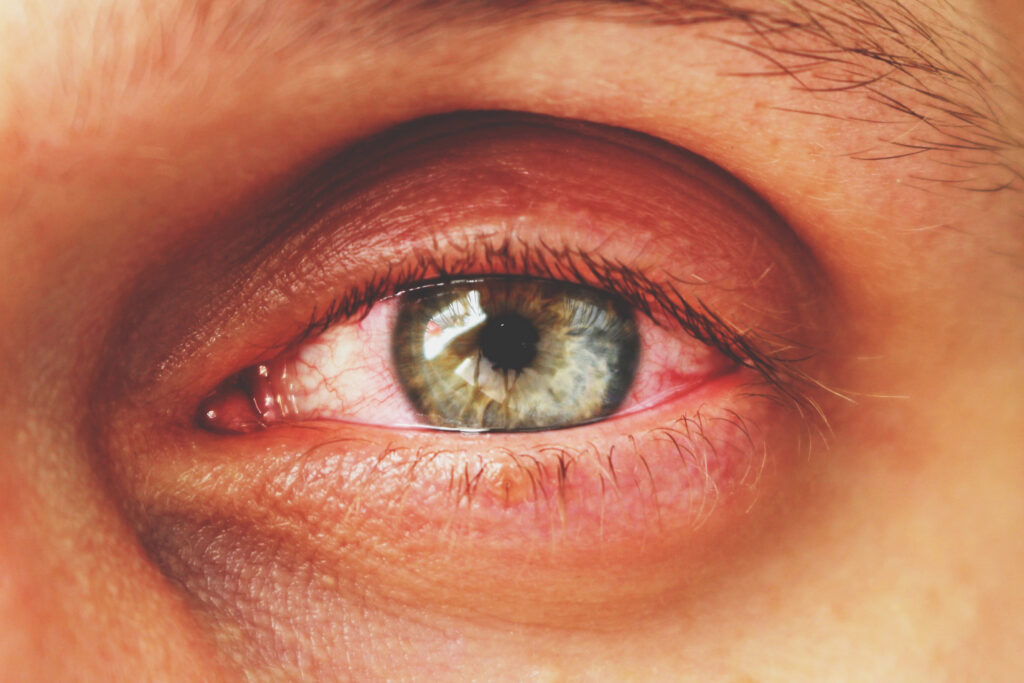
Waking up with watery, burning eyes can be an uncomfortable and frustrating experience. For some, it’s an occasional inconvenience, while for others, it’s a recurring issue that interferes with starting the day comfortably. There are a variety of factors that can contribute to this morning eye irritation—from dry eyes and allergens in your environment to overnight eye strain or inadequate moisture in the air. In this article, we’ll explore common causes of waking up with watery, burning eyes, provide tips for prevention and relief, and help you identify when it’s best to seek guidance from an eye doctor. If you’re dealing with persistent morning eye discomfort, the experts at Eye Pros are here to help you find effective solutions to start each day with clearer, healthier eyes. Common Causes of Watery, Burning Eyes in the Morning Waking up with watery, burning eyes can stem from several underlying causes, many of which are manageable with simple lifestyle changes or treatments. Common causes of morning eye discomfort: Dry Eye Syndrome Dry eyes are a major contributor to morning irritation. During sleep, reduced blinking and tear production can cause the eyes to become dry, leading to a burning sensation when you wake up. In response, the eyes may overproduce tears, which can result in watery, burning eyes as they try to compensate for overnight dryness. Allergies Allergens like dust mites, pet dander, and mold often accumulate in bedding and pillows. When you sleep, prolonged exposure to these allergens can irritate the eyes, causing itching, watering, and burning. Seasonal allergies can also play a role, especially if your bedroom windows are open, allowing pollen and outdoor allergens to enter. Environmental Factors Sleeping with a fan, heater, or air conditioning can dry out the air, leading to eye discomfort. A lack of moisture in the air overnight can worsen dryness, especially in individuals already prone to dry eyes. Low humidity levels, particularly in winter months, can cause additional irritation as the eyes struggle to retain moisture. Eye Strain and Digital Exposure Prolonged screen time before bed can cause eye strain, which may lead to morning irritation. Staring at screens reduces blinking, which prevents the eyes from staying adequately lubricated. Eye strain from screens, especially before bed, can create tension in the eye muscles, which may result in burning or discomfort upon waking. Contact Lenses Wearing contact lenses late into the evening or, worse, sleeping in them can cause a buildup of bacteria and debris, leading to irritation and inflammation. Even if contacts are removed before bed, some people may still experience lingering dryness or discomfort due to the lenses’ impact on natural tear production. If you’re frequently experiencing morning eye discomfort, understanding these causes is the first step toward finding relief. For a personalized assessment and recommendations, consult an eye doctor at Eye Pros who can help identify the source of your symptoms and provide targeted treatment. Symptoms and Related Conditions Morning eye irritation can manifest in several ways, and recognizing specific symptoms may help you identify underlying issues or related conditions. Symptoms often accompanying morning watery, burning eyes: Watery and Burning Sensation A combination of excessive tearing and a burning sensation can indicate a dryness imbalance, where the eyes try to compensate by overproducing tears. This is commonly linked to conditions like dry eye syndrome or eye strain. Discharge or Crust Formation Waking up with crusty discharge around the eyelids or lashes is often associated with blepharitis, a condition characterized by inflamed eyelid edges. This discharge can exacerbate burning and watery sensations, especially upon first opening your eyes in the morning. Itchiness or Redness Persistent itchiness and redness often indicate an allergic response or irritation from environmental factors like dust or pet dander. These symptoms are commonly seen in people with allergies or mild eye infections. Pain or Blurred Vision If you experience pain, sensitivity to light, or temporary blurring when you wake up, it could suggest a more serious condition, such as an eye infection or a tear film imbalance. Pain and vision changes should be evaluated by an eye doctor as soon as possible. Each of these symptoms can point to different eye conditions that may require specific treatment. If you’re experiencing any of these issues frequently or they worsen over time, an eye doctor at Eye Pros can help diagnose the cause and recommend appropriate relief options. Prevention and Relief Tips Preventing morning eye irritation can often be achieved through simple adjustments to your environment and nighttime routine. Tips to reduce morning eye discomfort: Use Humidifier Adding a humidifier to your bedroom can help maintain moisture levels in the air, preventing dryness that contributes to burning, watery eyes. This is particularly helpful during winter when indoor heating can dry out the air. Change Pillowcases and Bedding Regularly Washing bedding frequently can help remove dust mites, pet dander, and other allergens that may irritate your eyes while you sleep. Opt for hypoallergenic bedding if allergies are a consistent problem. Limit Screen Time Before Bed Reducing digital screen exposure at least an hour before bed can minimize eye strain. Consider using “night mode” settings on your devices, as these reduce blue light, which can contribute to eye fatigue. Apply Lubricating Eye Drops Using lubricating eye drops before bed can help keep your eyes moisturized throughout the night. If dry eye is a common issue, your eye doctor may recommend a specific type of artificial tears to provide longer-lasting relief. Consider Allergy-Proof Bedding If allergies are causing eye discomfort, using allergy-proof pillow covers and mattress protectors can reduce exposure to dust mites and other allergens, helping to alleviate morning eye symptoms. Adjust Sleeping Position and Environment Sleeping with a fan blowing directly at your face or in a room with low humidity can increase eye dryness. Adjust your fan position, or try keeping windows closed to prevent exposure to outdoor allergens. By incorporating these preventative measures into your routine, you may be able to reduce or even eliminate morning eye discomfort. For tailored
Dry Eyes in the Morning: Common Causes and Simple Solutions

Waking up with dry, uncomfortable eyes can be a frustrating start to the day. If you’re one of the many people who experience dryness, irritation, or even blurry vision in the morning, you might wonder what’s causing this recurring issue. While it’s common to experience occasional dryness, frequent morning dry eyes could be due to a variety of factors—from environmental conditions to underlying health issues. In this article, we’ll dive into the most common causes of morning dry eyes, share simple solutions to help relieve discomfort, and discuss when it may be time to consult an eye doctor. If you’re looking for lasting relief, Eye Pros offers expert care and personalized treatment options to keep your eyes comfortable and healthy. Common Causes of Dry Eyes in the Morning Waking up with dry eyes can stem from various factors, many of which are related to your sleep environment and habits. Common causes include: Environmental Factors: Dry air, especially from heaters or air conditioners running overnight, can remove moisture from the air and lead to morning dryness. This effect is particularly noticeable in colder seasons when indoor heating is more common. Sleep Position and Eye Exposure: If you sleep with a fan directed at your face or in a position that partially exposes your eyelids, it can cause the eyes to dry out. Some people also have a condition called nocturnal lagophthalmos, where the eyelids don’t fully close during sleep, leaving the eyes more vulnerable to drying. Reduced Tear Production Overnight: Naturally, tear production slows down during sleep, which may cause the eyes to feel dry upon waking. This is particularly common in people who already have mild dry eye symptoms during the day. If you frequently experience dry eyes in the morning, paying attention to these factors can help you identify potential culprits. For a personalized approach to managing dry eye symptoms, consider consulting an eye doctor at Eye Pros. Health Conditions Linked to Morning Dry Eyes Morning dry eyes can sometimes be a symptom of underlying health conditions that affect tear production and eye moisture. Common conditions causing dry eyes upon waking include: Dry Eye Syndrome: This chronic condition occurs when the eyes don’t produce enough tears or when the tear film evaporates too quickly. Those with dry eye syndrome often experience heightened symptoms in the morning due to overnight tear reduction. Sleep Apnea and CPAP Use: People with sleep apnea who use CPAP machines may experience morning dry eyes. The airflow from CPAP masks can inadvertently leak around the eyes, drying them out and causing irritation. Eyelid Conditions: Conditions like lagophthalmos, where the eyelids do not close fully during sleep, can leave the eyes exposed to air and lead to morning dryness. This exposure increases the risk of irritation and discomfort upon waking. If you think a health condition might be contributing to your morning dry eyes, an eye doctor at Eye Pros can help diagnose and treat the root cause, providing relief and protecting your long-term eye health. Simple Solutions for Managing Morning Dry Eyes If you’re waking up with dry eyes, several simple solutions can help ease the discomfort. Try these remedies: Use Eye Drops Before Bed and Upon Waking: Preservative-free artificial tears or overnight gel drops can help keep your eyes lubricated while you sleep and provide relief in the morning. Try a Nighttime Ointment: Thicker than drops, lubricating eye ointments are designed to stay on the eyes longer overnight, providing extended moisture and protection while you sleep. Run a Humidifier in Your Bedroom: Adding moisture to the air with a humidifier can counteract the dryness caused by heaters or air conditioners, keeping the environment gentler on your eyes. Wear a Sleep Mask or Eye Shield: A sleep mask or moisture-sealing eye shield can help protect your eyes from direct airflow, reducing overnight dryness and irritation. Try Warm Compress in the Morning: Applying a warm compress after waking up can help stimulate tear production and relieve irritation, leaving your eyes feeling refreshed. These simple adjustments can go a long way in preventing dry eyes each morning. For persistent symptoms, an eye doctor at Eye Pros can offer additional treatments and customized solutions for long-term relief. When to See an Eye Doctor for Morning Dry Eyes If you frequently wake up with dry, irritated eyes, it may be time to consult an eye doctor. Signs for seeking professional guidance: Persistent or Worsening Symptoms: If morning dry eye symptoms persist despite trying home remedies, an eye doctor can help determine if there’s an underlying cause that needs addressing. Impact on Vision: Morning dry eyes that cause blurry or fluctuating vision can indicate more severe dry eye issues, which an eye doctor can assess and treat. Symptoms Accompanied by Redness or Discharge: Dryness accompanied by redness, discharge, or pain may be a sign of infection or another condition requiring prompt attention. The eye doctors at Eye Pros can provide a thorough examination and recommend treatments tailored to your specific needs, ensuring that your eyes stay comfortable and healthy each day. FAQs Why are my eyes dry when I wake up in the morning? Morning dry eyes can result from reduced tear production overnight, environmental factors like dry air, or sleeping with partially open eyelids. Certain health conditions, such as dry eye syndrome, can also contribute to morning dryness. How do I stop my eyes from drying out when I sleep? Using preservative-free eye drops or gel drops before bed, running a humidifier in your room, and wearing a sleep mask can all help keep your eyes moisturized while you sleep. Why do I wake up with dry stuff around my eyes? The “dry stuff” around your eyes is often made up of natural eye discharge, which can accumulate overnight. However, if it’s excessive or combined with dryness and irritation, consult an eye doctor to rule out any underlying conditions. Why do my eyes feel weird when I wake up? Waking up with dry, gritty, or irritated eyes can
What Happens If You Use Expired Contacts? Risks and Realities
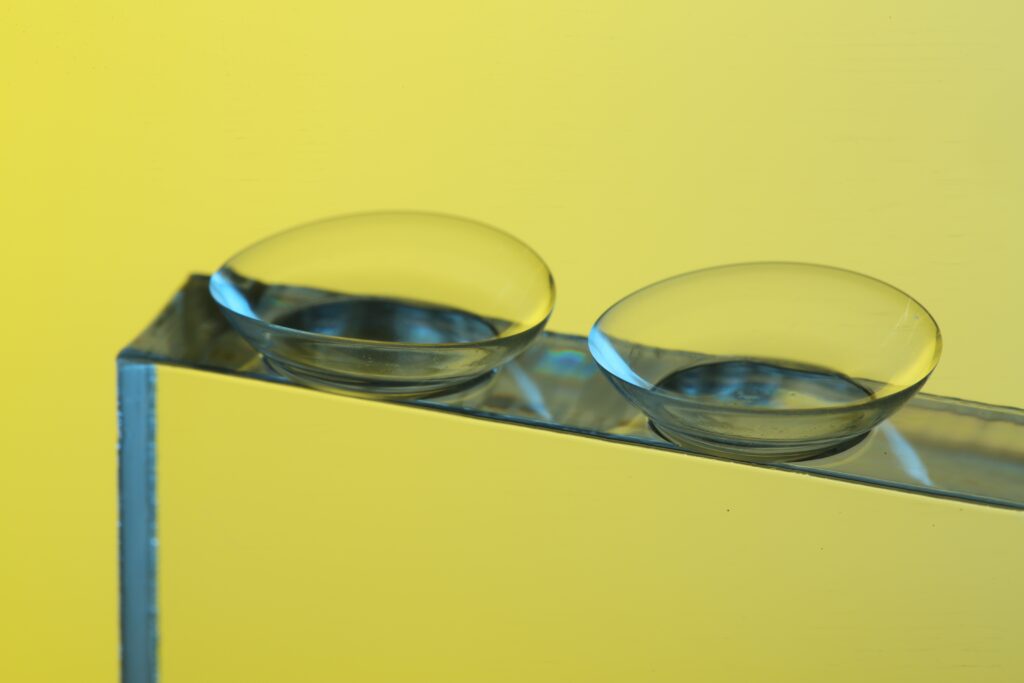
You might think using expired contact lenses just once can’t hurt, especially if they look clear and clean. But the truth is that wearing expired contacts can put your eye health at serious risk. Over time, the lens materials and solution lose their effectiveness, potentially leading to bacterial contamination, infections, and other eye complications. Expired lenses may seem convenient in the short term, but they often cause more harm than expected. In this article, we’ll discuss the risks of using expired contact lenses, the symptoms to watch for, and essential tips to help you avoid unnecessary complications. If you’re unsure about contact lens safety or need guidance on best practices, an eye doctor at Eye Pros can provide personalized care to keep your eyes safe and healthy. Understanding Expired Contact Lenses Expired contact lenses aren’t just about dates on a box—they indicate how long the materials and solutions within the lenses remain safe and effective. Why contact lens expiration dates matter: Why Contacts Expire: Contact lenses are made of specialized materials designed to stay safe for a certain period. After this time, the materials start to degrade, losing their flexibility and moisture-retaining properties, which increases the risk of irritation and discomfort. Solution Shelf Life: The storage solution that lenses are packaged in also has a shelf life. Over time, it loses its ability to protect against bacteria, meaning expired lenses can harbor harmful microorganisms even if they look clean. Increased Contamination Risk: With expired lenses, there’s a greater risk of bacteria, fungi, and other contaminants building up, which can lead to infections and damage to your eyes. These contaminants may not be visible but can cause significant harm. Understanding the potential dangers of expired lenses highlights the importance of staying within safe usage guidelines. For guidance on safe contact lens practices, an eye doctor at Eye Pros can provide personalized advice. Health Risks of Wearing Expired Contacts Using expired contact lenses can expose your eyes to several health risks, from minor irritations to serious infections. Main risks to be aware of: Bacterial Infections: Expired lenses are more susceptible to bacterial contamination, increasing the risk of infections like bacterial conjunctivitis. This painful condition can cause redness, discharge, and swelling in the eyes. Fungal Infections: Fungi can also grow on expired lenses, potentially leading to serious infections such as fungal keratitis. These infections are difficult to treat and, if left unaddressed, can damage vision. Corneal Damage: As lenses degrade, they can lose their smooth surface, causing micro-abrasions or tiny scratches on the cornea. This can lead to pain, irritation, and even corneal ulcers if bacteria enter these tiny wounds. Allergic Reactions: Expired contacts may cause eye allergies, as the materials degrade and the lens surface becomes more likely to attract allergens, dust, and other irritants. Reduced Oxygen to the Eyes: Older lenses can prevent sufficient oxygen from reaching the cornea, leading to red, irritated eyes. This lack of oxygen can worsen eye health over time and cause discomfort. If you experience any of these symptoms, stop using the lenses immediately and consult an eye doctor. The professionals at Eye Pros can provide the treatment you need and guide you in safe lens practices. Common Symptoms of Problems from Expired Contacts Using expired contacts can lead to noticeable symptoms that signal an issue with your eye health. Common signs to watch for: Redness and Irritation: One of the first symptoms may be redness or a scratchy feeling in your eyes. This irritation is often a warning sign of contamination or material breakdown in expired lenses. Blurred or Cloudy Vision: Expired lenses can impact clarity, causing your vision to become blurry or cloudy. This blurriness is due to the lens materials degrading or bacteria building up on the surface. Pain and Swelling: Persistent eye pain, swelling, or sensitivity to light could indicate an infection. These symptoms are serious and should be addressed by an eye doctor immediately. Unusual Eye Discharge: If you notice excessive or unusual discharge from your eyes, it may be a sign of an infection from using expired contacts. This discharge is often a thick, colored fluid indicating bacterial presence. Increased Sensitivity to Light: Eyes that feel overly sensitive to light after using expired contacts might be reacting to a mild infection or surface damage caused by the degraded lenses. If you experience any of these symptoms, it’s essential to remove your contacts right away and consult an eye doctor at Eye Pros. Early detection and treatment can prevent these issues from worsening. Safety Tips and Precautions for Contact Lens Use Taking precautions with your contact lenses can prevent many of the risks associated with expired or poorly maintained lenses. Essential tips for eye safety: Regularly Check Expiration Dates: Before opening a new pack of contact lenses, check the expiration date to ensure they’re safe to use. When receiving a new supply, double-check that the distributor provided fresh, unexpired lenses—mistakes can happen, and catching it early can prevent future issues. Proper Storage and Handling: Store your lenses in a cool, dry place and use the recommended storage solution to keep them clean. Avoid storing contacts in places with extreme temperatures, as this can degrade the lens material. Dispose of Expired Lenses Promptly: If you have expired lenses, discard them to prevent accidental use. It’s easy to forget that an opened pack may still have unused but expired lenses, so be diligent. Avoid Stockpiling Lenses: Purchase lenses based on your replacement schedule to avoid letting unopened lenses expire. Buying only what you’ll use within the recommended timeframe helps minimize waste and ensures you always have safe lenses on hand. Follow a Consistent Cleaning Routine: For reusable lenses, clean them daily with a proper solution, never water, as tap water can introduce harmful bacteria to the lenses. By practicing these simple precautions, you can extend the life of your lenses and protect your eye health. For additional guidance on contact lens care, consult an eye doctor at Eye Pros for expert advice
Struggling to Drive at Night? Tips for Drivers with Astigmatism

If you find yourself squinting, struggling with glare, or noticing halos around lights while driving at night, you’re not alone. Many people experience these challenges—and in some cases, astigmatism might be the underlying cause. This common condition can lead to blurred vision and heightened sensitivity to bright lights, especially after dark. Headlights, streetlights, and even dashboard lights can cause distracting reflections, making it harder to stay focused on the road. The good news is that a few simple adjustments can improve your comfort and clarity while driving at night. Here, we’ll go over practical tips that may help—especially if astigmatism is contributing to the problem. And if these changes don’t bring enough relief, consulting an eye doctor at Eye Pros can provide tailored solutions based on your vision needs. Why Night Driving is Harder with Astigmatism Astigmatism causes the eye to focus light unevenly due to an irregularly shaped cornea or lens. This uneven light distribution often leads to blurred vision and difficulty distinguishing objects clearly, especially in low-light conditions. This issue can worsen at night due to: Increased Glare: Streetlights, headlights, and other bright lights can create a glare effect, making it challenging to focus and creating halos around lights. Reduced Contrast Sensitivity: In dark conditions, people with astigmatism often struggle to differentiate between objects due to low contrast. This can lead to a sensation of “fuzzy” or unclear vision, making it difficult to spot road signs or pedestrians. Light Distortion: Astigmatism can also cause lights to appear streaked or doubled, further complicating night vision and making driving a more stressful experience. Fortunately, with a few adjustments and the right support, you can improve your night driving experience. For those seeking additional solutions, an eye doctor at Eye Pros can help by recommending specialized lenses or treatments to enhance nighttime clarity and comfort. Practical Tips for Safer Night Driving with Astigmatism If night driving is challenging due to astigmatism, these tips can help reduce glare, improve clarity, and enhance your comfort and safety on the road. Night Driving Tips for Astigmatism Use Anti-Reflective Lenses: Glasses with an anti-reflective coating can reduce glare from headlights and streetlights, allowing for clearer vision. Many people with astigmatism find this coating helpful in low-light conditions. Keep Your Windshield and Mirrors Clean: Dust, smudges, and dirt can intensify glare and light scatter, which makes vision even more challenging for those with astigmatism. Regularly cleaning your windshield and mirrors helps reduce these reflections. Adjust Your Dashboard Lighting: Lowering the brightness of your dashboard can minimize additional glare within your car, making it easier to focus on the road ahead without distractions. Wear Prescription Glasses Designed for Night Driving: If you have glasses specifically prescribed for driving, use them. Night-driving lenses can enhance contrast and sharpness, which can be especially helpful for people with astigmatism. Rest Your Eyes Before Driving: Reducing screen time and giving your eyes a break before night driving can help prevent eye fatigue and improve focus on the road. Implementing these tips can make a noticeable difference in your night driving experience. If you’re still struggling with glare or clarity, it may be time to visit an eye doctor at Eye Pros for further guidance. They can recommend lenses or treatments tailored to your vision, ensuring a safer and more comfortable drive. When to See an Eye Doctor If you continue to struggle with night driving despite making adjustments, it might be time to consult an eye doctor. Persistent issues with glare, blurred vision, or discomfort on the road could indicate that your prescription needs updating or that specialized lenses could improve your night vision. An eye doctor can provide: Night-Specific Lenses: Certain glasses, including those with anti-reflective coatings or lenses specifically designed for night driving, can reduce glare and improve contrast. Updated Prescription: Vision changes over time, and a slight prescription adjustment can make a big difference for clearer night vision. Customized Advice: Based on your specific needs, your eye doctor can provide guidance on additional measures to enhance night driving safety. At Eye Pros, our experienced team is here to support your unique vision needs. Schedule an appointment with one of our eye doctors to explore options that can make night driving with astigmatism safer and more comfortable. FAQs How do you drive at night with astigmatism? To drive more comfortably at night with astigmatism, use anti-reflective lenses, keep your windshield clean, and adjust your dashboard lighting to reduce glare. Wearing prescription glasses specifically designed for night driving can also enhance clarity. If challenges persist, consulting an eye doctor can provide further solutions. Are there glasses that help with astigmatism and night driving? Yes, glasses with anti-reflective coatings or lenses designed for night driving can reduce glare and improve contrast, making night driving easier for those with astigmatism. Ask your eye doctor at Eye Pros about options for night-specific lenses. Can glasses fix astigmatism lights? Glasses with the right prescription can correct the way light is focused in your eye, reducing distortion and helping minimize the appearance of halos or streaks from lights at night. Anti-reflective lenses can further reduce glare for better night vision. How to reduce eye strain while driving at night? To reduce eye strain, ensure you’re wearing the correct prescription, lower your dashboard brightness, and take breaks from screens before night driving. Anti-reflective coatings on lenses and clean windshields can also make a big difference in reducing eye strain. Why is night driving hard with astigmatism? Astigmatism causes uneven focusing of light, leading to blurry vision, halos, and glare, which can be particularly noticeable at night. These effects make it harder to focus clearly, causing increased eye strain and making night driving challenging. Do anti-reflective lenses help with night driving? Yes, anti-reflective lenses can significantly reduce glare from headlights and streetlights, making them an effective tool for night driving comfort. They are especially beneficial for individuals with astigmatism who are more sensitive to light. When should I see an eye doctor for night driving issues?
